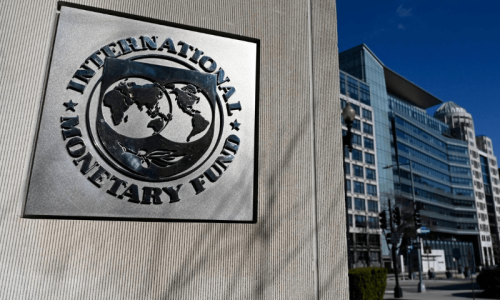A report by US-based think tanks highlights that countries, primarily those in the middle and lower-income brackets, are burdened by surcharges imposed by the International Monetary Fund (IMF) on top of their borrowing interest payments, which exacerbates global inequalities.
Between 2020 and 2023, indebted member nations paid approximately $6.4 billion in surcharges, as revealed in a report by Boston University’s Global Development Policy Centre and Columbia University’s Initiative for Policy Dialogue. Over the past four years, the number of countries subjected to these surcharges has more than doubled.
An earlier report by the Center for Economic and Policy Research estimates that the IMF is projected to impose around $9.8 billion in surcharges over the next five years. Critics argue that these surcharges fail to expedite repayment but instead penalize countries already grappling with liquidity constraints, heighten the risk of debt distress, and divert scarce resources that could otherwise stimulate their struggling economies.
The report indicates that countries such as Ukraine, Egypt, Argentina, Barbados, and Pakistan bear the brunt of surcharges, collectively contributing 90 per cent of the IMF’s surcharge revenues. These additional charges, added onto the fund’s increasingly higher basic rate, constitute the IMF’s primary revenue source, making up 50 per cent of total revenue in 2023.
Director of the Global Development Policy Center, Kevin Gallagher, emphasizes that IMF surcharges exacerbate economic pressure on vulnerable countries, particularly during global shocks, as they augment debt service payments precisely when borrowing nations most require emergency financing.
Furthermore, data released by the Institute of International Finance earlier this year indicates that global debt levels soared to a record $313 trillion in 2023, while the debt-to-GDP ratio, a key indicator of a country’s debt repayment capability, reached new highs across emerging economies.
In response to these challenges, Managing Director Kristalina Georgieva stated last Friday that IMF shareholders have acknowledged the importance of addressing the difficulties faced by low-income countries.




